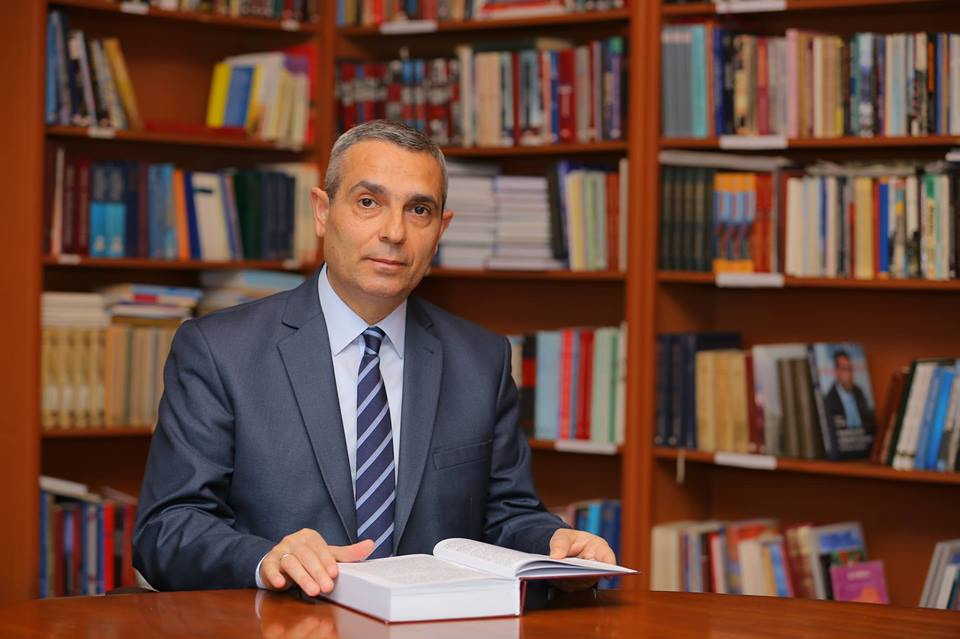Interview of Minister of Foreign Affairs of Artsakh Masis Mayilian to the Mediamax Agency
-The meeting between foreign ministers of Armenia and Azerbaijan, which took place in Paris on January 16, received positive feedback from the international community. It highlighted the importance of preparing Armenian and Azerbaijani societies to peace in this context.The thesis of the need to prepare for peace is widely discussed. What can you say about the broad resonance to this thesis?
The thesis of the need to prepare societies for peace during the process of conflict settlement is a commonplace truth of sorts. The process of settlement of the conflict between Artsakh and Azerbaijan had periods when the leaders were considered to be moving closer towards a peace agreement than their respective societies. That is why there were calls for preparations for peace.
However, the attempts to put an equal sign between the moods in Armenia and Artsakh on one side and the moods in Azerbaijan on the other are completely inappropriate in the current stage of Artsakh-Azerbaijan conflict. Both Armenia and Artsakh have gone further towards the preparations for peace and Azerbaijan now needs to catch up, take the long path that Azerbaijani authorities have been avoiding at all costs.
Official Baku not only failed to prepare its society to peace, but actually moved in the opposite direction. Azerbaijan is actively installing xenophobia against Armenians at the state level; it encourages hate crimes against Armenians, lauds individuals guilty of hate crimes, hinders public peacemaking initiatives and threatens Artsakh with war, keeps trying to isolate Artsakh, and so on.
This policy casts doubts over the entire settlement process and pushes is backwards, the same it did before. Azerbaijani authorities have to cease the hate campaign and make real effort to root out the negative phenomena that rose in Azerbaijani society as a result of many years of instilled intolerance against Armenians.
-Do you see prerequisites for trust between the parties?
Official Stepanakert often comes forward with initiatives aimed at building trust between the sides. Azerbaijan always responds with threats.
The atmosphere of trust is a pillar of any conflict settlement. However, experience shows that measures for trust building can be effective only if the irreversibility of peaceful settlement is secured and the process includes international mechanisms guaranteeing non-renewal of military actions.
Obviously, you can hardly expect Azerbaijan to take real steps towards building trust when that country is actually hindering introduction of international mechanisms of control over the ceasefire regime, including the measures agreed at Vienna and St. Petersburg summits in 2016.
-Can you see any signs of Artsakh becoming a fully-fledged member of the peace talks in the nearest future?
Restoration of the full format of negotiations with direct, fully-fledged participation of Artsakh Republic is one of the key points of our foreign policy agenda. I mentioned in some interviews that this goal can be achieved if the two Armenian states have clear distribution of roles and commitments in the conflict settlement process. Coordinated efforts of Yerevan and Stepanakert will create preconditions for Artsakh to return to the negotiations table.
The leadership of the Republic of Armenia has often stated that the interests of Stepanakert should be represented in the negotiations by the authorities that were elected by the people of Artsakh.
At the same time, Azerbaijan is opposing the restoration of the full format of negotiations through various flimsy ideas and suggestions. Azerbaijan’s approach to this matter is a touchstone that demonstrates the lack of real readiness in Baku to seek a fair resolution to the conflict between Azerbaijan and Artsakh.
-What do you think about the unofficial meetings between Armenian Prime Minister and the President of Azerbaijan?
We welcome any meetings that facilitate peace and security in the region.
-Artsakh has reiterated again its readiness to de jure take responsibility for peace and stability in the region. What efforts does Artsakh make to do that?
As an important military and political factor in the region, Artsakh has long been a provider of security and a de facto contributor to regional stability. For instance, Artsakh unilaterally installed a 24/7 video surveillance system at the Line of Contact with its own state funds, which could become a part of the ceasefire supervision mechanism. The international mediators were given an opportunity to get acquainted with the with the system.
When we speak of Artsakh Republic’s readiness to de jure take the responsibility for regional peace, the first thing we mean is that Artsakh must be fully involved in the peace talks and share the responsibility for the future of the region equally with other signatories of the legally binding peace treaty.
-What initiatives have you undertaken for international recognition of Artsakh?
International recognition is number one priority in our foreign policy agenda. Currently, recognition is coming at the level of administrative regions and cities all over the world. The Foreign Ministry of Artsakh is taking consistent steps to give additional impetus to the positive trends in the process of international recognition.
Simultaneously, we work towards expansion and deepening of decentralized cooperation and external ties. Last year the geography of the decentralized cooperation expanded to include the Middle East. In total, six cities of Artsakh and other countries established friendly relations in 2018.




















































